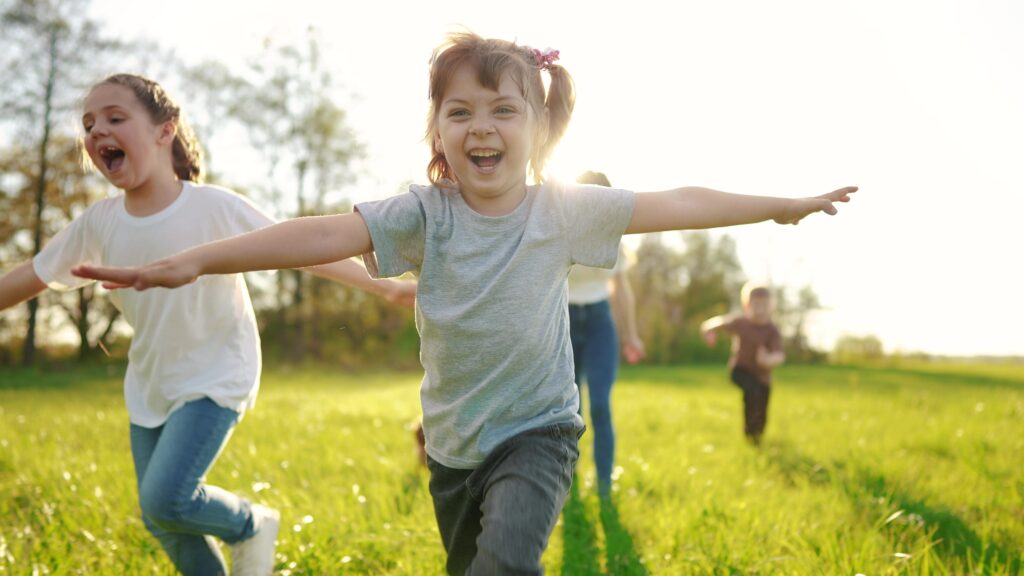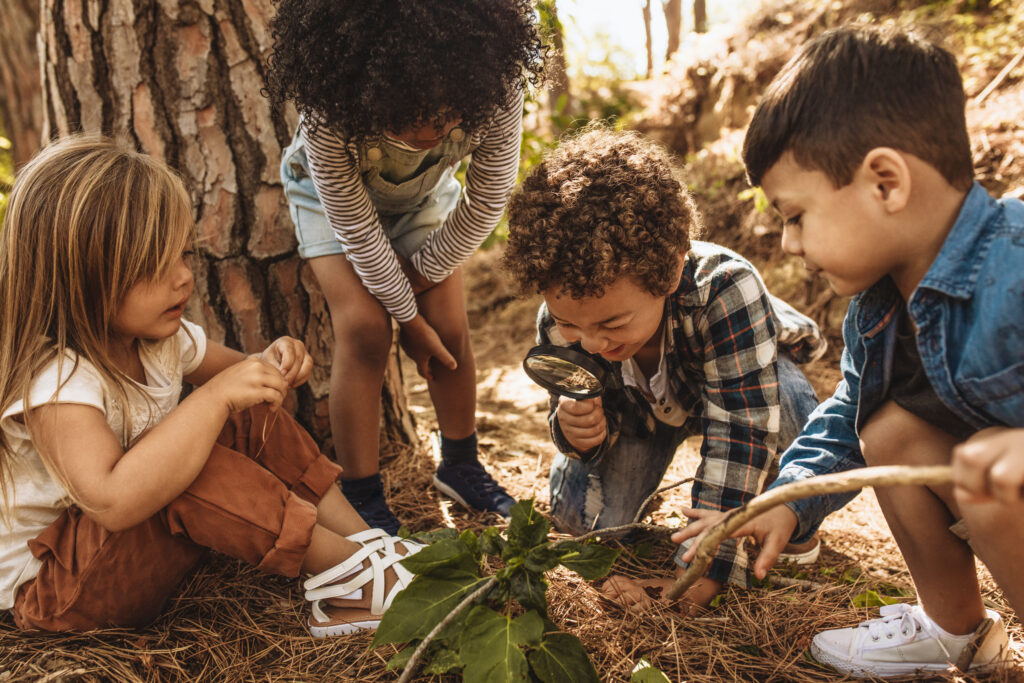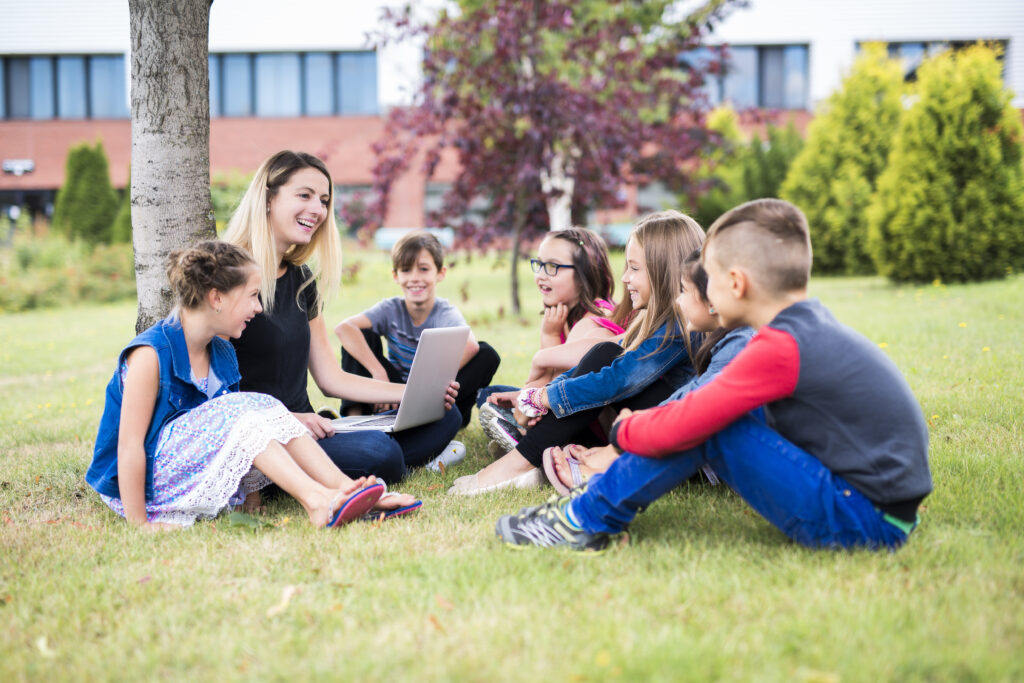The importance of nature in children’s development and mental health is a topic that is increasingly gaining attention in contemporary research (McAdams et al., 2023). From improving cognitive functions to reducing symptoms of stress – studies in renowned journals like JCPP Advances and CAMH suggest that regular nature experiences not only enhance the well-being of children but are also essential for their holistic development. In this blog post, we dive into the world of child and adolescent psychiatry and explore how experiences in nature can serve as a catalyst for healthy growth.
Unveiling the Impact of Nature on Child and Adolescent Mental Health
In the field of child and adolescent psychiatry, the influence of natural environments on the mental wellbeing of children is repeatedly emphasised (Rask et al., 2023). Despite increasing urbanisation and digitalisation, connection to nature remains a fundamental need with studies from various journals showcasing that direct interaction with nature plays a crucial role in the healthy growth and emotional stability of children (Chawla, 2020; Chiumento et al., 2018; Maes et al., 2021; Mascall, 2023; McAdams et al., 2023; O’Brien, 2020; Rask et al., 2023; Roberts et al., 2020). From strengthening their social skills to improving their concentration, the significance of these research findings for practical application is noteworthy.

“New studies emphasise the crucial role of nature in the mental development of children.”
Nature’s Influence on Cognitive and Emotional Growth in Children
One of the most notable qualities of nature is its capacity to foster cognitive advancement and emotional health in children (McAdams et al., 2023). Research suggests that regular exposure to natural environments enhances children’s concentration, augments creativity, and leads to better academic outcomes (McAdams et al., 2023). Furthermore, socially engaging horticultural activities conducted in educational settings are reported to bolster the mental and emotional welfare of children, with pronounced benefits for those facing developmental challenges (Chiumento et al., 2018). These insights hold significant implications for pedagogical methodologies, underscoring the imperative to incorporate natural experiences into the fabric of daily school life.
Beyond cognitive enhancement, nature exerts a significant influence on mental health (Rask et al., 2023). Children with ready access to natural spaces often exhibit reduced stress levels. Some studies even posit that the effect of nature on children’s mental health may be as considerable as the influences of family background and the age of parents (Maes et al., 2021). Moreover, positive effects on wellbeing have been documented in children who engage in both brief and prolonged interactions with nature, including nature-based, or ‘eco’, therapy (Roberts et al., 2020). This highlights nature’s vital role as a therapeutic agent in the prevention and treatment of mental health challenges in young people.
Additionally, emerging studies shed light on the social dimensions of natural interactions. Participatory activities in the outdoors foster cooperation and encourage socialising among children, enabling them to assume responsibility for their surroundings and to cultivate an intensified environmental consciousness (Mascall, 2023; O’Brien, 2020; Roberts et al., 2020). These experiences are crucial in nurturing a deep-seated appreciation and respect for nature in young minds.

“Research findings show that nature experiences significantly promote the cognitive development and emotional well-being of children.”
Shaping the Future: Integrating Nature into Education and Child Development
Contemporary studies advocate for a paradigm shift in educational and parenting strategies to more robustly embed natural experiences, given their profound impact on child development and mental health (Chawla, 2020; O’Brien, 2020; Roberts et al., 2020). This entails the creation of additional green spaces within school premises, the integration of nature-based experiences into educational curricula, and the encouragement of outdoor activities. Given the substantial influence of natural exposure on wellbeing, the advancement of nature-centric therapies for children facing mental health challenges is also recommended (Roberts et al., 2020). It is imperative for policymakers and those in governance to acknowledge the pivotal role of nature in the developmental journey of children and to allocate adequate resources accordingly. By doing so, we can ensure equitable access to the benefits of nature for all children, irrespective of their geographical location or socioeconomic status.

“Integrating nature experiences into education and upbringing is a crucial step for the development of our children.”
Conclusion
The array of evidence underscoring nature’s contribution to the development and mental health of children is compelling, as substantiated by recent research (Chawla, 2020; Chiumento et al., 2018; Maes et al., 2021; McAdams et al., 2023; Rask et al., 2023; Roberts et al., 2020). Incorporating natural experiences into the fabric of everyday life promises to yield a positive impact on our children’s growth and well-being.

“Comprehensive research underscores the indispensable importance of nature for the mental health and development of children.”
Conflicts of Interest:
None
References
- Chawla, L. (2020), Childhood nature connection and constructive hope: A review of research on connecting with nature and coping with environmental loss. People Nat, 2: 619–642. doi.org/10.1002/pan3.10128
- Chiumento, A., Mukherjee, I., Chandna, J. et al. (2018), A haven of green space: learning from a pilot pre-post evaluation of a school-based social and therapeutic horticulture intervention with children. BMC Public Health 18, 836. doi.org/10.1186/s12889-018-5661-9
- Maes, M.J.A., Pirani, M., Booth, E.R. et al. (2021), Benefit of woodland and other natural environments for adolescents’ cognition and mental health. Nat Sustain 4, 851–858. doi.org/10.1038/s41893-021-00751-1
- Mascall, C. E. (2023), Environmental education: Exploring young people’s experiences of environmental programmes (Doctoral dissertation, University of Surrey).
- McAdams, T.A., Cheesman, R. and Ahmadzadeh, Y.I. (2023), Annual Research Review: Towards a deeper understanding of nature and nurture: combining family-based quasi-experimental methods with genomic data. J Child Psychol Psychiatr, 64: 693-707. doi.org/10.1111/jcpp.13720
- O’Brien, L. (2020), Learning outdoors: the Forest School approach. In Outdoor Learning Research (pp. 238-253). Routledge.
- Rask, C.U., Duholm, C.S., Poulsen, C.M., Rimvall, M.K. and Wright, K.D. (2024), Annual Research Review: Health anxiety in children and adolescents — developmental aspects and cross-generational influences. J Child Psychol Psychiatr. doi.org/10.1111/jcpp.13912
- Roberts, A., Hinds, J., & Camic, P. M. (2019). Nature activities and wellbeing in children and young people: a systematic literature review. Journal of Adventure Education & Outdoor Learning, 20(4), 298–318. doi.org/10.1080/14729679.2019.1660195
NB this blog has been peer-reviewed
